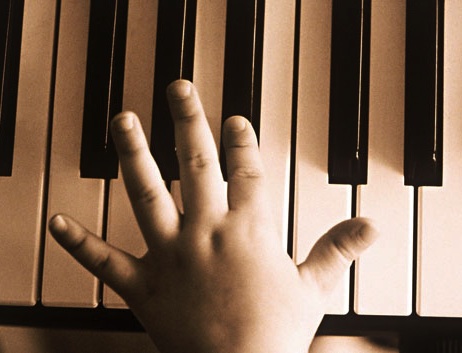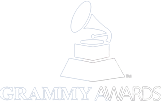Home Frank’s Blog Music and Education
Music and Education
Frank Fitzpatrick 10/11/2012

|
No time to read? Pick your language & press PLAY
Getting your Trinity Audio player ready...
|
WHY MUSIC – Part 5: Music and Education
 “I would teach children music, physics, and philosophy; but most importantly music, for in the patterns of music and all the arts are the keys of learning.” – Plato
“I would teach children music, physics, and philosophy; but most importantly music, for in the patterns of music and all the arts are the keys of learning.” – Plato
I wasn’t born into a family of musicians, but I was raised in a musical city. Detroit was the home of Motown Records and one America’s top destinations for the classic rock, R&B and jazz artists of the late ‘60’s and early ‘70’s. With five older brothers introducing me to all kinds of music, I was hooked from the time I could walk.
The Test
The public school I attended as a boy would loan instruments to students who were committed to studying, but first you had to pass the test. In the first grade I decided to take up the flute, so my mother made me an appointment with the music administrator – a stern old man in a stuffy little room in the school basement. I don’t remember exactly what the tests were – something about clapping a pattern with one hand while tapping your foot to another, and maybe singing along to the melody he played on the piano… What I do clearly remember, however, is that I failed that test. ![]() He told my mother that I lacked musical aptitude and that I would not be eligible for the instrument program or for lessons. It was a real blow.
He told my mother that I lacked musical aptitude and that I would not be eligible for the instrument program or for lessons. It was a real blow.
Fortunately, I was a pretty self-determined kid and wasn’t going to let his judgment, nor anyone else’s, destroy my passion for music. I never did learn to play the flute, but I was able to create my own path to becoming a successful Hollywood film composer and record producer.
Music As a Right
Looking back today, I can’t help but wonder how many children are denied music education in America, either because it is unavailable, unaffordable or they are determined unworthy. Regardless of the reason, in a country with such tremendous resource, and whose economy depends on innovation, it is both an injustice to our children and a threat to our future.
 Even in the poorest villages of Venezuela children are given a chance to learn to play music. One of those children, our friend and musical maestro extraordinaire, Gustavo Dudamel, has made it his life mission to fight for this right throughout the world: “My main goal, and it’s a big one, is that every child has a chance to get close to music – as a right – that as they have access to food, health, and education, they get the chance to have art and culture – especially music.”
Even in the poorest villages of Venezuela children are given a chance to learn to play music. One of those children, our friend and musical maestro extraordinaire, Gustavo Dudamel, has made it his life mission to fight for this right throughout the world: “My main goal, and it’s a big one, is that every child has a chance to get close to music – as a right – that as they have access to food, health, and education, they get the chance to have art and culture – especially music.”
From the example set by Dudamel, to Plato’s advice, to the abundance of new research showing the positive effects of music on learning and the brain, it should be a no-brainer to make music an integral part of our children’s education.
12 Great Reasons for Music in Education
• Stimulate the imagination
• Strengthen hand-eye coordination
• Develop better listening skills
• Increase pattern recognition
• Improve language & communication
• Enhance memory
• Teach self-discipline
• Cultivate creativity
• Reduce stress and improve focus
• Help and inspire at-risk students
• Improve academics & SAT scores
BONUS: Music makes learning fun!
With all of the research and awareness of the benefits of music, why are we not stressing the importance of music education? Could it be that our underlying valuation and understanding of music as a culture has shifted throughout history in such a way that society, including our leaders, don’t even realize what has been lost?
The Changing Value of Music
Music has been a part of every human culture we have ever discovered. It wasn’t until a little over 500 years ago, with the birth of the Renaissance and the invention of the printing press, that music started to shift from an integral part of daily life, spiritual and healing practices and community ritual to a form of entertainment that could be commercialized – via concert tickets and printed music. By the late 19th and early 20th century, with the invention of the phonograph and radio, music had firmly established itself as a commercially viable commodity, creating entire industries. Flash forward to the digital revolution of the past 10 years, and the value of that commodity has been reduced to 99 cents, and ultimately…zero.
For the most part, modern society has narrowed its value of music by only viewing it through two principle lenses: that of commodity and that of entertainment.
It’s no wonder so many decision makers have lost track of the tremendous intrinsic value music has to development and the vitality of our culture. If we are going to truly benefit from the use of music for education and the cultivation of a more creative, intelligent and compassionate nation, we must first shift our values around music itself.
Call to Action
Since the early ‘90’s in America, more and more music programs have been removed from public schools. This is bad news. The good news is that we now have the scientific proof and social statistics to prove how essential music is for the development of our children and creation of a more intelligent, innovative and compassionate society. Although we might have a long road to change our public school system, which is grappling with all kinds of issues, we can start using music today to create a better future for our children. Here are a few recommendations:

• Enroll in after-school music programs
• Integrate music into your home life
• Play and listen to music with your children
• Take kids to concerts and live performances
• Donate your unused instruments
• Support music teachers and local musicians
• Fight to put music back in public education
• Attend recitals at your local schools
• Support children’s choirs & youth orchestras
• Learn to sing or to play an instrument
• If you already play, teach someone else how
Even if you don’t have children, you can still help by supporting music programs for kids, sharing musical experiences with someone else’s child, or simply rethinking the way you value and support music in your own life. Not only will these activities contribute to the welfare of our children and society, they will also enrich your life and deepen your connection to the world around you.
View this article on Huffington Post.
To view the full Why Music series click here.
I’m here to help YOU create a better world, inside and out.
Contact Me© 2025 Frank Fitzpatrick Website by AllHereIndia















